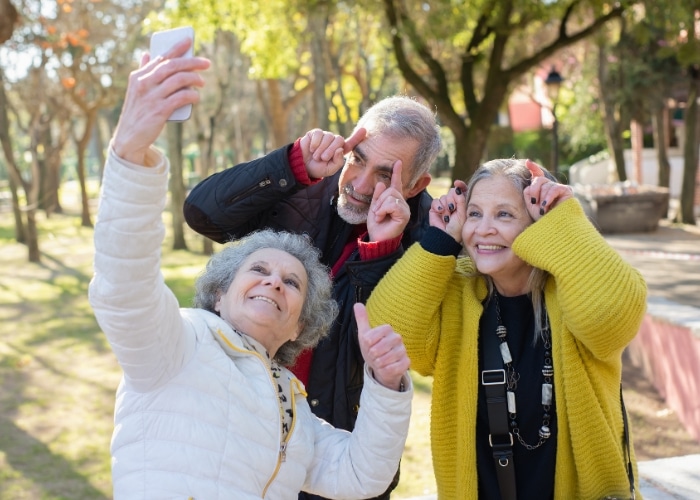
When it comes to healthy ageing, social connections play a crucial role, and for older adults transitioning into residential care, the risk of social isolation and its impact on cognitive function cannot be ignored.
A 2022 survey by Australian Aged Care Research and Industry Innovation Australia shows one-third of older adults living in residential aged care feel socially isolated, with significant and long-term negative impacts on health and wellbeing.
This is a concerning statistic because we know that social engagement, friendship and companionship are associated with improved mood, better cognition and reduced dementia risk.
In both residential and community aged care settings, activity attendance is a key indicator of social participation. These programs include activities like group outings, arts and crafts sessions, music therapy and reminiscence activities.
However, despite the vital role these programs play in driving interaction and building a sense of community, they have varying degrees of success – particularly in residential care.
For example, Enrich Living Services’ ‘Community Connections’ program improved social connections and quality of life for clients accessing community care through outings like ice skating, motorcycle rides and social gatherings. Increased happiness and a renewed sense of belonging were key highlights of the program’s success in promoting personal well-being.
One participant shared, “I sort of went into my shell for 10 years. I wouldn’t go out, I didn’t go anywhere. … Now, I started going out… And now I feel like my old self again.”
However, in residential aged care homes, there are challenges in ensuring widespread and consistent access to meaningful social activities. Limited resources, staffing issues, inconsistent paperwork and differences in levels of resident participation mean we don’t always know if these social programs are beneficial.
To find out more, we took a closer look at the impact of activities in aged care homes on resident’s quality of life, cognition and social networks.
Our study involved interviews with 96 residents in New South Wales. It explored activities that residents attended in the previous month and categorised them into four types: cognitive, physical, social and personal interest.
What was interesting is the activities provided were not directly related to residents’ quality of life or cognitive function.
Rather, we found that regardless of the activities attended, the most significant determinant of cognition level was the degree of social connectedness; residents with extensive family and friendship connections had better cognition.
This observation suggests that informal interactions outside of structured activities, such as conversations in corridors, with family outside the home or during personal care, may be better at preserving social and cognitive health.
The Royal Commission into Aged Care Quality and Safety put forward several recommendations targeting social connectivity within aged care homes, advocating for a specific social support category in service provision.
Going forward, aged care homes should seek to embed a strengths-based approach in their social support programs. This means celebrating uniqueness, focusing on who the person is, their values, what they do best, and what resources are already available that help them thrive despite their physical or mental condition.
Practically, in terms of activity provision, the earlier the residents are involved in recreational activity planning and delivery, the better. This would help ensure individual preferences, physical abilities (e.g. cognitive, visual or hearing impairments) and personalities are appreciated and valued.
Outside these activities, making the most of natural interactions that occur within common living spaces or personal care delivery is key.
Simple, everyday conversations about residents’ past experiences and how they shape their day-to-day lives can be integral in promoting cognitive health and well-being.
Offering training or creating a cheat sheet of strengths-based conversation phrases, topics and open and inclusive body language that staff can implement during routine care practices may be a good starting point.
Ms Laura Dodds, PhD Candidate, and Associate Professor Joyce Siette, Lead
Brain Health Hub, Western Sydney University